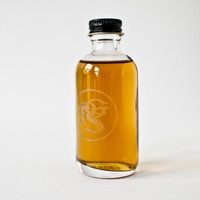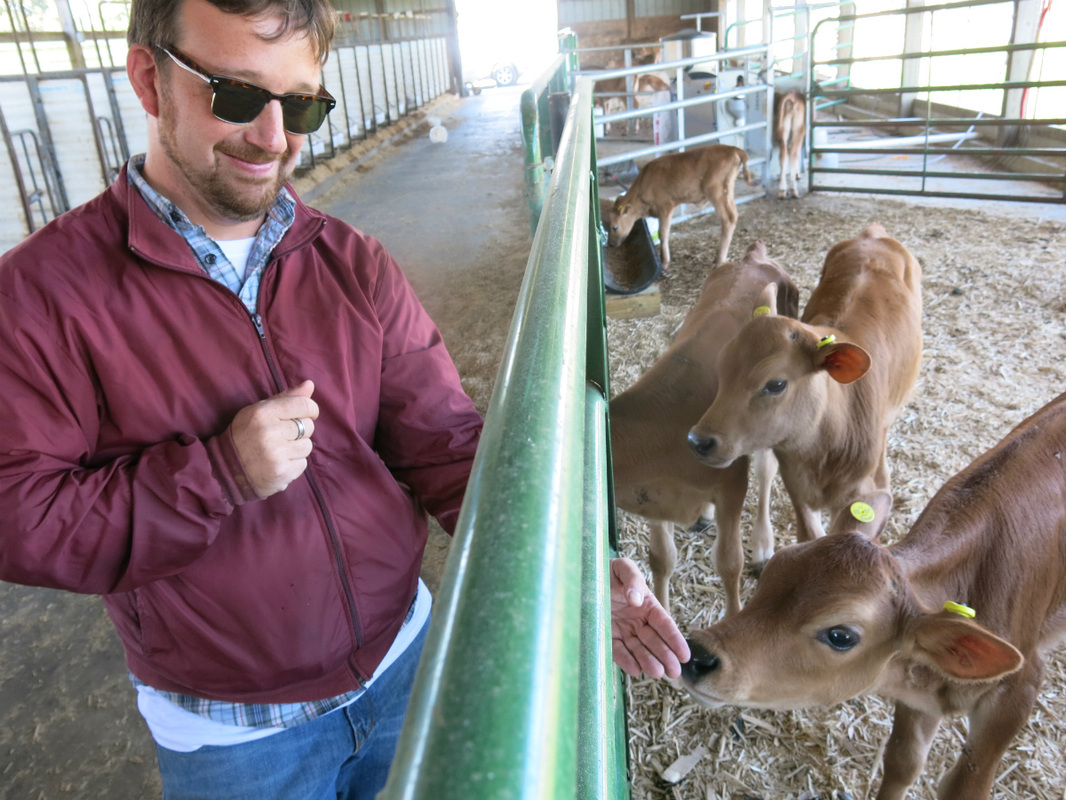
A mother cow tracks her calves by scent, and will grow anxious if separated. Smell is the main love currency between bulls and their mates. And cows have proven skittish about the odor of blood and offal (raising questions about whether they grasp their own mortality).
There’s a new cologne from Portland, Maine, specially created for cows. “I set out to make something [appealing], yet subtle, that cows would find soothing,” says creator Lisa Brodar. Brodar owns Portland General Store, maker of natural scents for the modern cattleman. Options include Moonshine, Moss, Tobacco, and Wood. Her new, cow-friendly cologne costs $110 a bottle and is targeted at the urban cowboy, “with the sun and dust clouds casting a warm light across his weathered skin.”
Brodar got the idea from Fragrancefreeliving.com, after the site ran a post about a Canadian farmer. In this story, a farmer’s cows are acting weird; he decides they’re repulsed by his odor. Apparently his wife was using artificially scented detergent in the laundry — and his cows weren’t into it. Soon the farmer started keeping a stash of fragrance-free clothes in the barn.
Brodar thinks cows are hypersensitive to artificial scents, because they haven’t been conditioned like humans. “Cows are like newborn babies,” says Brodar. “They haven’t been conditioned to enjoy chemical smells. They’ll sneeze and shy away.” Brodar’s challenge: Could she design a cologne that would appeal to both the sensitive bovine nose — and the stylish modern farmer?
She started doing research and learned that cows have reacted well to woody essential oils. Sandalwood, for instance, is used in India – where the bovine is sacred – as a cow-calming agent. It’s also been added to cattle feed in Wales, to reduce methane emissions.
Brodar tinkered, mixing natural oils and essences — sandalwood and sage, cedar and blue tansy (plus a few secrets). Finally, she hit on a balance she liked. It had a woody, earthen musk, with only a hint of the pungency found in mainstream fragrances.
Before hitting the open market, Brodar did some product testing — with a very select focus group. Doused in the cologne, she made three visits to a small Maine dairy farm. The first trip was to introduce herself to the cows, the second was to attempt a milking, and the third was to spend time in the barn, “just hanging out” with her new cow friends.
Results? The farm’s owner told Brodar the cows seemed relaxed, and that milk production was high during her visits. Anecdotally, the cows rubbed up against her quite a bit — especially the females. Brodar admits the test wasn’t scientific, but “all the signs seemed positive.”
There’s a new cologne from Portland, Maine, specially created for cows. “I set out to make something [appealing], yet subtle, that cows would find soothing,” says creator Lisa Brodar. Brodar owns Portland General Store, maker of natural scents for the modern cattleman. Options include Moonshine, Moss, Tobacco, and Wood. Her new, cow-friendly cologne costs $110 a bottle and is targeted at the urban cowboy, “with the sun and dust clouds casting a warm light across his weathered skin.”
Brodar got the idea from Fragrancefreeliving.com, after the site ran a post about a Canadian farmer. In this story, a farmer’s cows are acting weird; he decides they’re repulsed by his odor. Apparently his wife was using artificially scented detergent in the laundry — and his cows weren’t into it. Soon the farmer started keeping a stash of fragrance-free clothes in the barn.
Brodar thinks cows are hypersensitive to artificial scents, because they haven’t been conditioned like humans. “Cows are like newborn babies,” says Brodar. “They haven’t been conditioned to enjoy chemical smells. They’ll sneeze and shy away.” Brodar’s challenge: Could she design a cologne that would appeal to both the sensitive bovine nose — and the stylish modern farmer?
She started doing research and learned that cows have reacted well to woody essential oils. Sandalwood, for instance, is used in India – where the bovine is sacred – as a cow-calming agent. It’s also been added to cattle feed in Wales, to reduce methane emissions.
Brodar tinkered, mixing natural oils and essences — sandalwood and sage, cedar and blue tansy (plus a few secrets). Finally, she hit on a balance she liked. It had a woody, earthen musk, with only a hint of the pungency found in mainstream fragrances.
Before hitting the open market, Brodar did some product testing — with a very select focus group. Doused in the cologne, she made three visits to a small Maine dairy farm. The first trip was to introduce herself to the cows, the second was to attempt a milking, and the third was to spend time in the barn, “just hanging out” with her new cow friends.
Results? The farm’s owner told Brodar the cows seemed relaxed, and that milk production was high during her visits. Anecdotally, the cows rubbed up against her quite a bit — especially the females. Brodar admits the test wasn’t scientific, but “all the signs seemed positive.”


 RSS Feed
RSS Feed